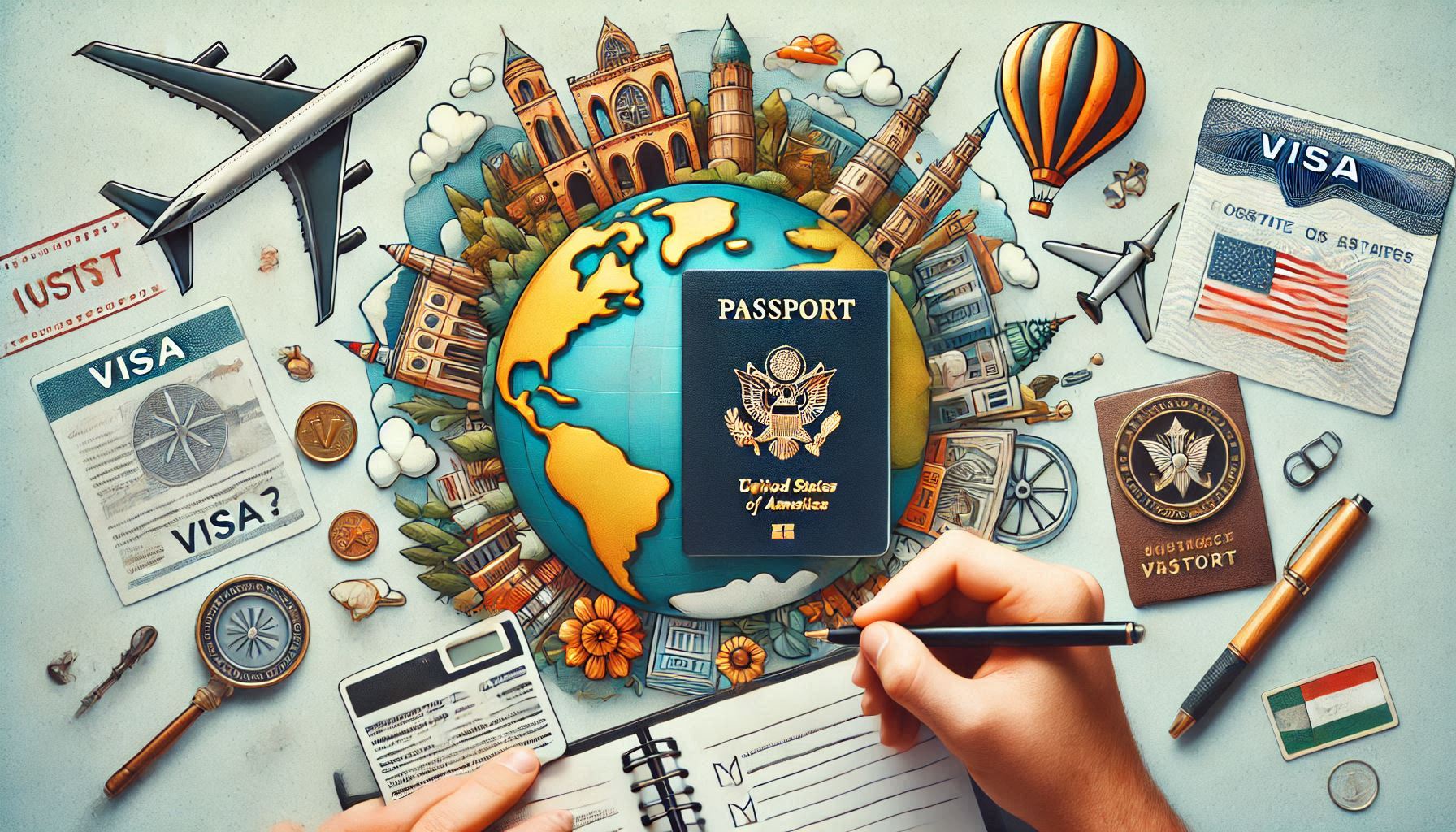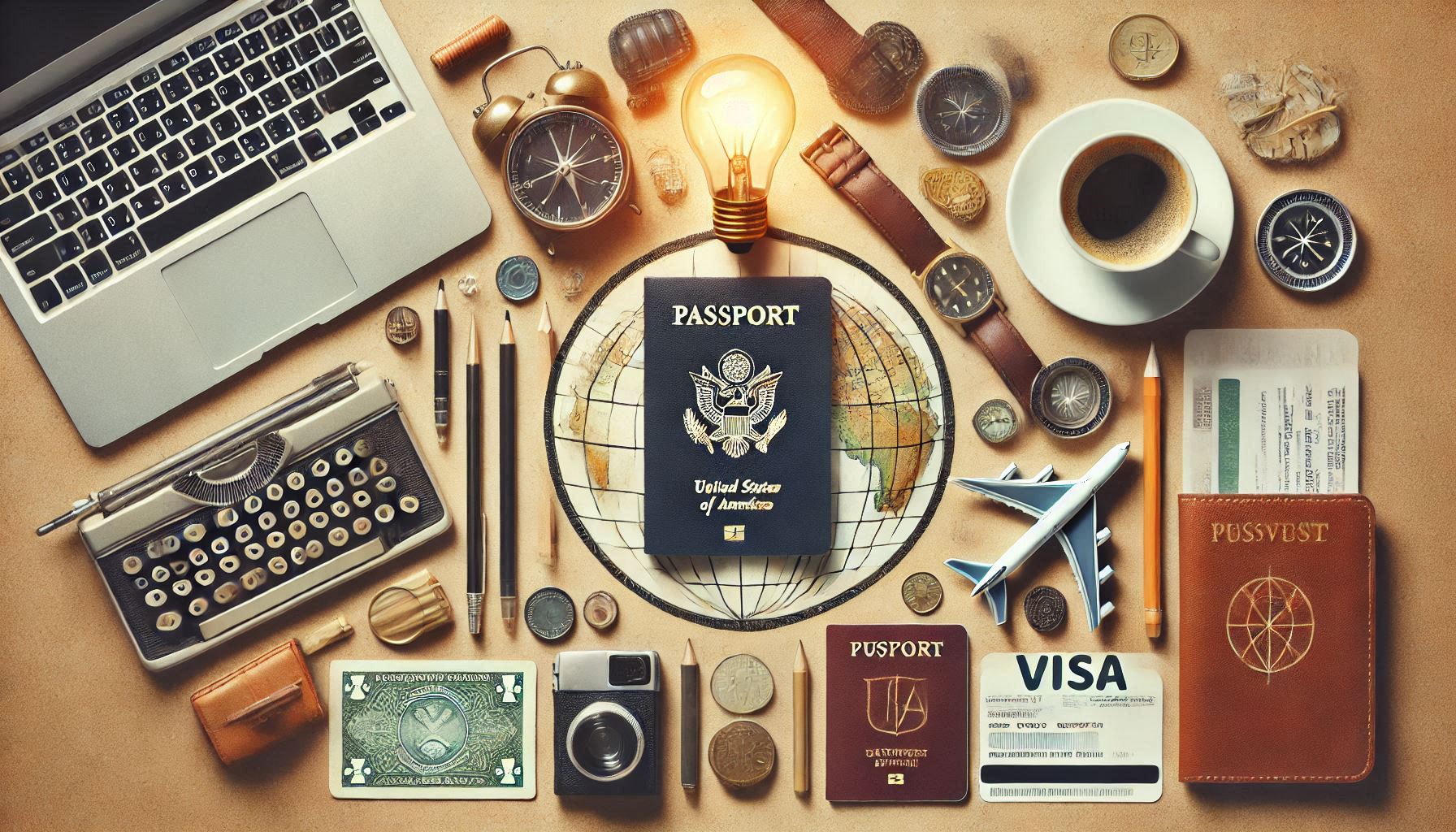--------- Visa Know-How: The Ultimate Traveler’s Guide to Finding the Right Visa
Jun 29, 2024
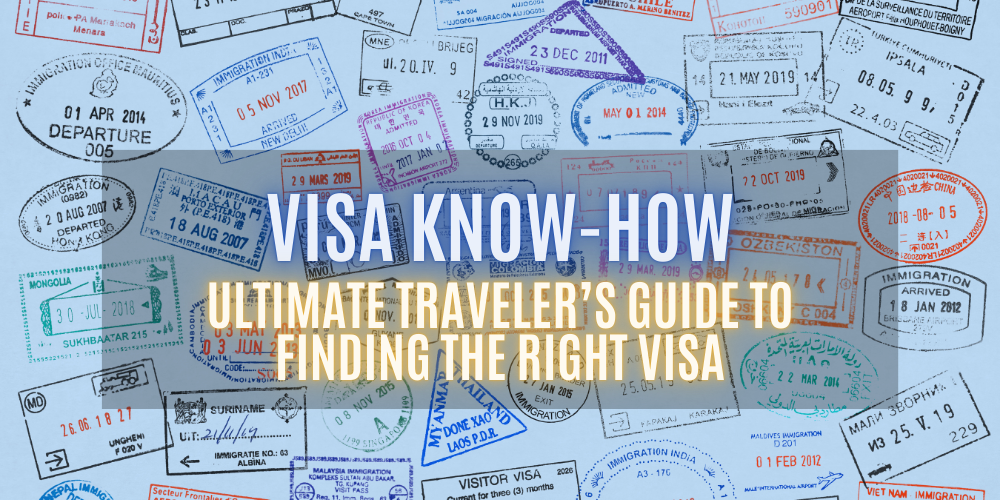
Choosing the right visa for your travel needs can be a daunting task. With numerous options available, each with its own set of requirements and benefits, it's easy to feel overwhelmed. This guide is designed to help you navigate the complex world of visas, ensuring you find the one that best suits your needs. Whether you're planning a vacation, studying abroad, working in a foreign country, or visiting family, we've got you covered.
Understanding Visa Categories
Tourist Visas
Tourist visas are for those who wish to visit a country for leisure or vacation. They typically allow for short stays, ranging from a few days to several months. Requirements often include proof of return travel, accommodation details, and sufficient funds for your stay. Some countries may also require travel insurance. Tourist visas are generally straightforward to apply for, making them a popular choice for short-term travelers.
Business Visas
If your travel is for business purposes, such as attending meetings, conferences, or negotiating contracts, a business visa is what you need. These visas may require an invitation from a business in the destination country and proof of your professional background. Business visas often allow for multiple entries, making them ideal for frequent travelers. They might also include permissions to conduct various business-related activities, such as signing contracts or attending trade shows.
Student Visas
Student visas are essential for anyone planning to study abroad. These visas usually require acceptance from an educational institution and proof of financial support to cover tuition and living expenses. Some student visas also permit part-time work, allowing students to gain work experience while studying. Be sure to check the specific regulations in the destination country, as some might have restrictions on the number of hours you can work or the type of employment you can seek.
Work Visas
Work visas are for those who intend to take up employment in a foreign country. They can vary widely based on the type of work, duration, and employer sponsorship. Requirements often include a job offer from a company in the destination country, proof of qualifications, and sometimes a labor market test to show that no local workers are available for the position. Work visas can open the door to long-term career opportunities and possibly even permanent residency.
Family Visas
Family visas facilitate family reunification. If you have a family member who is a citizen or resident of the destination country, you may qualify for a family visa. These visas often require proof of relationship, the sponsoring family member’s legal status, and sometimes a financial guarantee to ensure you will not become a public charge. Family visas can vary greatly, so it’s important to understand the specific requirements and benefits for each type.
Special Purpose Visas
These include medical, cultural exchange, and other specific-purpose visas. Medical visas are for those seeking treatment in a foreign country, often requiring a letter from the medical institution. Cultural exchange visas are for participating in exchange programs, requiring proof of enrollment and sponsorship. Other special purpose visas may include visas for journalists, performers, or religious workers.
What Do You Need to Qualify for a Visa?
Eligibility Requirements
Eligibility criteria vary by visa type and destination. Generally, you will need a valid passport, proof of purpose for your visit, and evidence of financial stability. Some visas also require health checks and background verification. For instance, a work visa might require a job offer, while a student visa needs an acceptance letter from an educational institution. Always check the specific requirements for the visa you are applying for.
Documentation
Common documents include a completed application form, passport photos, travel itinerary, financial statements, and letters of invitation or acceptance. It's crucial to prepare these documents meticulously to avoid delays or rejections. Ensure all documents are up to date and meet the specific requirements of the visa you are applying for. Missing or incorrect documents are a common cause of visa denial.
Health and Character Requirements
Many countries require a medical examination and a clean criminal record. Ensure you check these requirements early in the application process. For example, Australia and Canada often require detailed health assessments and police certificates. Failing to meet health and character requirements can result in visa denial or additional scrutiny.
Financial Requirements
You will need to demonstrate that you can support yourself financially during your stay. This could include bank statements, sponsorship letters, or proof of employment. Financial requirements can vary significantly, so ensure you have sufficient funds and appropriate documentation. Some countries may also require proof of travel insurance to cover medical emergencies.
Key Factors to Consider When Choosing a Visa
Purpose of Travel
Your primary reason for traveling will significantly influence the type of visa you need. Clearly define your travel purpose to narrow down your options. Are you traveling for leisure, work, study, or to visit family? Each purpose has specific visa categories. Choosing the correct category is the first step in a successful visa application.
Duration of Stay
Consider how long you plan to stay in the country. Some visas are for short-term visits, while others allow for extended stays or even permanent residency. Short-term visas, like tourist and business visas, are usually valid for a few months, while long-term visas, such as work and student visas, can last several years. Understanding the duration of stay allowed by each visa type will help you make an informed decision.
Application Process
Some visas have straightforward application processes, while others are more complex. Understanding the time and effort required can help you choose the most suitable visa. Research the application steps thoroughly, including any interviews or additional documentation needed. Some visas might also require biometric data or security clearances.
Visa Restrictions and Conditions
Each visa comes with specific restrictions and conditions. Be sure to understand these to avoid violating your visa terms and facing penalties. For example, tourist visas typically do not allow you to work, while work visas may restrict the type of employment you can undertake. Knowing these restrictions in advance will help you comply with visa regulations and avoid complications.
What is the Best Visa to Apply For?
Assessing Your Needs
Evaluate your travel goals, duration, and activities. This assessment will guide you towards the most appropriate visa category. Consider factors such as your purpose of travel, how long you intend to stay, and what activities you plan to engage in while abroad. Matching your needs with the right visa category is essential for a smooth application process.
Consulting with Experts
Immigration consultants and legal experts can provide invaluable advice tailored to your situation. They can help you navigate complex requirements and increase your chances of approval. Professional advice can be particularly useful for complex visa applications or if you have specific concerns. Consultants can also assist in preparing documentation and ensuring all requirements are met.
Personal Circumstances
Your employment status, family ties, and educational background can influence your visa choice. Consider these factors to select the best visa for your needs. For example, if you have family members in the destination country, a family visa might be more appropriate than a tourist visa. Similarly, your professional qualifications might make you eligible for specific work visas.
Detailed Comparison of Popular Visas
Tourist vs. Business Visa
Tourist visas are ideal for leisure travel and short stays, while business visas are suited for professional activities. Each has different documentation requirements and allowable activities. Tourist visas are generally easier to obtain, while business visas might require additional documentation such as a letter of invitation from a company. Understanding the specific requirements and restrictions of each visa type will help you choose the right one.
Student vs. Work Visa
Student visas focus on educational pursuits and may include work permits for part-time employment. Work visas are geared towards full-time employment and usually require an employer’s sponsorship. The application process and requirements for these visas can be quite different, so it’s important to choose based on your primary purpose. Consider your long-term goals and how each visa type can help you achieve them.
Short-term vs. Long-term Visa
Short-term visas are for temporary visits, while long-term visas allow extended stays or permanent residency. Choose based on the length and purpose of your stay. Short-term visas often have fewer requirements but more restrictions, while long-term visas require more documentation and can offer more flexibility. Understanding the benefits and limitations of each option will help you make an informed decision.
Step-by-Step Guide to Applying for a Visa
Research
Start by gathering information about the visa you need. Official government websites and trusted resources are great places to begin. Look for specific requirements, processing times, and any country-specific regulations. Thorough research will help you avoid common pitfalls and ensure a smooth application process.
Documentation
Prepare all necessary documents meticulously. Missing or incorrect documentation is a common reason for visa delays or denials. Ensure that all documents are complete, accurate, and meet the specific requirements of the visa application. Organize your documents carefully to streamline the application process.
Application Submission
Submit your application through the appropriate channels, whether online or at a consulate. Ensure you follow all instructions carefully. Double-check all information before submission to avoid mistakes that could delay the process. Keeping copies of your application and supporting documents is also a good practice.
Interview Process
Some visas require an interview. Prepare thoroughly, bringing all required documents and being ready to explain your travel plans. Practice answering common interview questions and ensure you present yourself professionally. A well-prepared interview can significantly enhance your chances of approval.
Approval and Denial
If your visa is approved, review the terms and conditions carefully. If denied, understand the reasons and explore your options for reapplication or appeal. Keep a copy of your application and any correspondence for future reference. Knowing the reasons for denial can help you address issues and improve your chances in future applications.
Common Mistakes to Avoid
Incomplete Applications
Ensure all forms and documents are complete and accurate. Incomplete applications can lead to delays or rejections. Double-check your application to ensure all required information is included. Incomplete applications are a common cause of visa denial, so take the time to review everything carefully.
Missing Deadlines
Adhere strictly to all deadlines. Late submissions are often not accepted. Mark important dates on your calendar and set reminders to ensure timely submission. Missing deadlines can lead to application rejection or significant delays.
Ignoring Visa Conditions
Understand and comply with all visa conditions to avoid penalties or deportation. Make sure you know what activities are allowed and prohibited under your visa. Violating visa conditions can result in severe consequences, including deportation and future travel bans.
Providing Incorrect Information
Always provide truthful and accurate information. False statements can result in visa denial or future travel bans. Review your application thoroughly to ensure all information is correct. Providing false information can have long-term negative impacts on your ability to travel.
Frequently Asked Questions (FAQs)
- How long does it take to get a visa? Processing times vary by visa type and country. It can range from a few days to several months. Check the specific processing times for your visa type and destination.
- Can I work on a tourist visa? Generally, tourist visas do not allow employment. Check the specific conditions of your visa. Working on a tourist visa can result in visa cancellation and deportation.
- What happens if my visa application is denied? You can often reapply or appeal the decision. Understand the reasons for denial and address them in your reapplication. Consulting with an immigration expert can help improve your chances of success.
- How can I extend my visa? Check the specific procedures for extending your visa in the destination country. Some visas allow extensions under certain conditions. Ensure you apply for an extension before your current visa expires.
- Can I apply for a different visa if my circumstances change? Yes, but you must meet the new visa's eligibility criteria. Ensure you understand the requirements and process for switching visas. Changing your visa type might involve a new application process and additional documentation.
Choosing the right visa for your needs is crucial for a successful and hassle-free trip. By understanding the different visa categories, eligibility requirements, and key factors to consider, you can make an informed decision. Remember, each visa type has specific conditions and benefits, so it's important to choose the one that best fits your travel plans.
At GovAssist, we specialize in helping travelers navigate the visa application process. Our team of experts is dedicated to providing personalized guidance, ensuring you have all the information and support you need to obtain the right visa for your needs. Let us assist you in making your travel dreams a reality.
Recent Articles
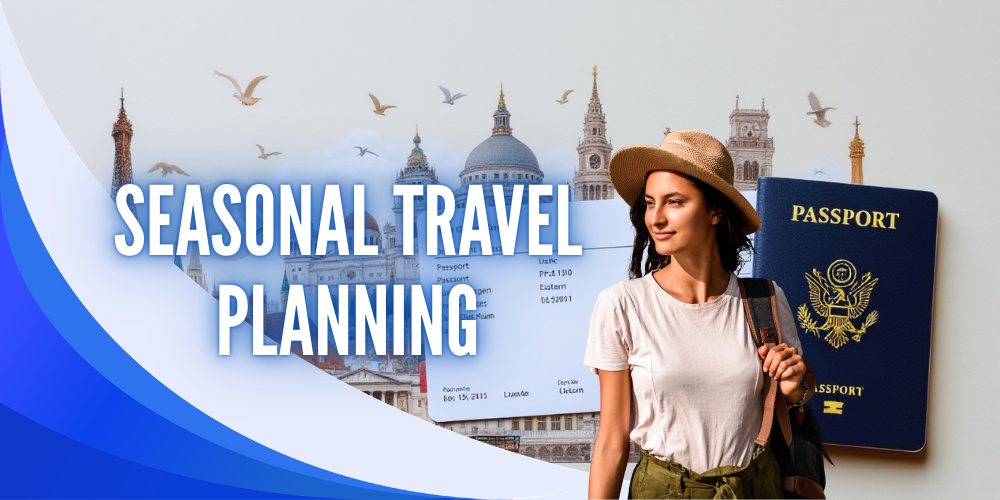
Seasonal Travel Planning: Spring in Europe (Visa Tips Included)
Spring—stretching from March through May—hits a sweet spot many travelers overlook. The continen
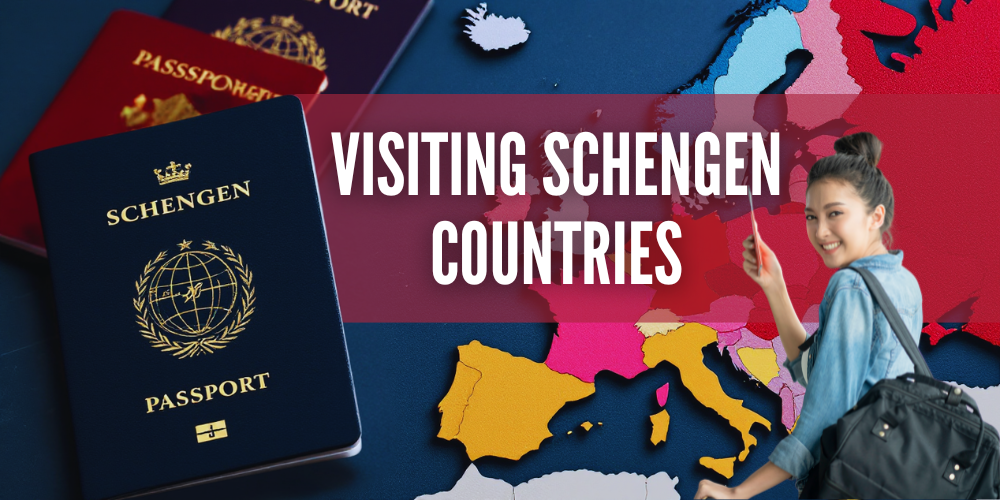
Best Schengen Countries to Visit with One Visa
A Schengen visa is one of the most powerful travel documents for exploring Europe. With a single app
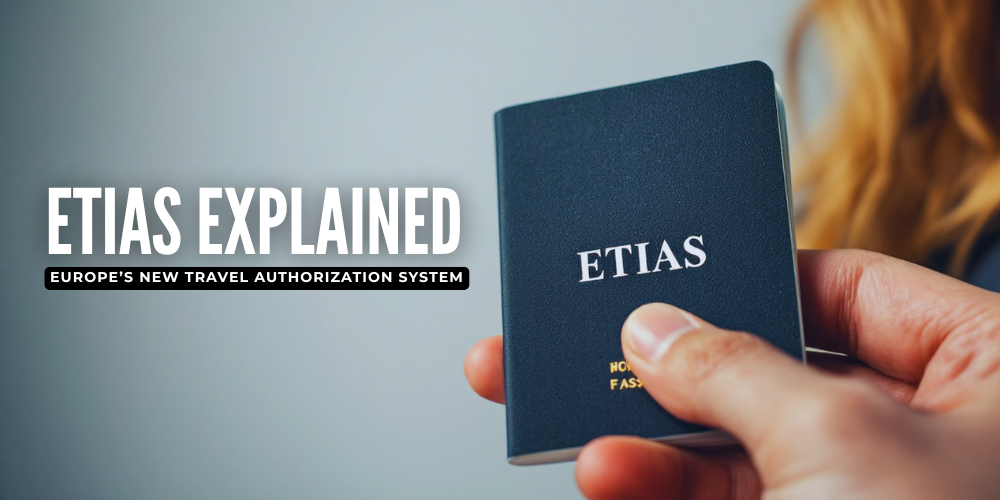
ETIAS Explained: Europe’s New Travel Authorization System
Europe is shaking up short-stay travel, and if you’ve ever zipped across the continent visa-free,
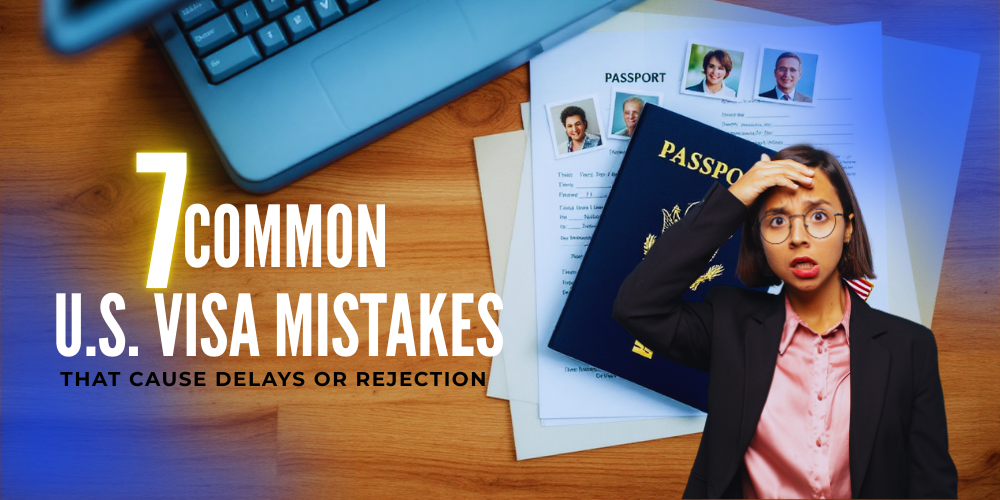
7 Common U.S. Visa Mistakes That Cause Delays or Rejection
U.S. visa delays and refusals are rarely caused by a single dramatic mistake. More often, they stem
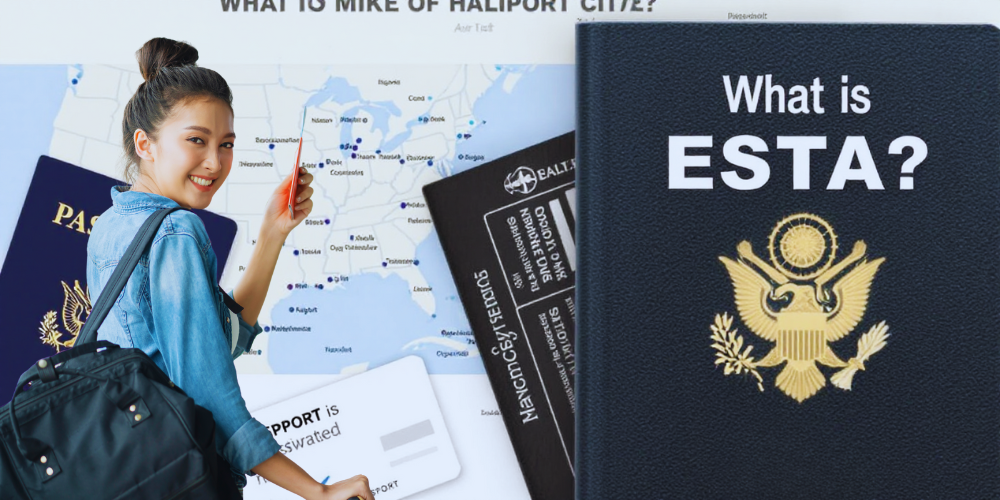
ESTA Explained: Who Needs It and How to Apply in 2026
The ESTA—short for Electronic System for Travel Authorization—is the quiet gatekeeper behind vis
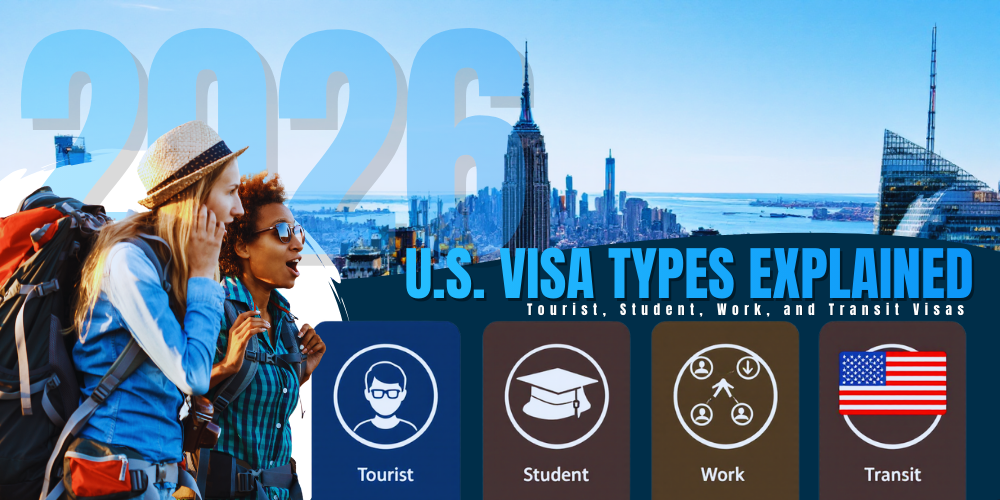
U.S. Visa Types Explained: Tourist, Student, Work, and Transit Visas (2026 Guide)
Before you book flights, pack bags, or start filling out forms, there’s one concept you need to un
Read More

Seasonal Travel Planning: Spring in Europe (Visa Tips Included)

Best Schengen Countries to Visit with One Visa

ETIAS Explained: Europe’s New Travel Authorization System

7 Common U.S. Visa Mistakes That Cause Delays or Rejection

ESTA Explained: Who Needs It and How to Apply in 2026

U.S. Visa Types Explained: Tourist, Student, Work, and Transit Visas (2026 Guide)
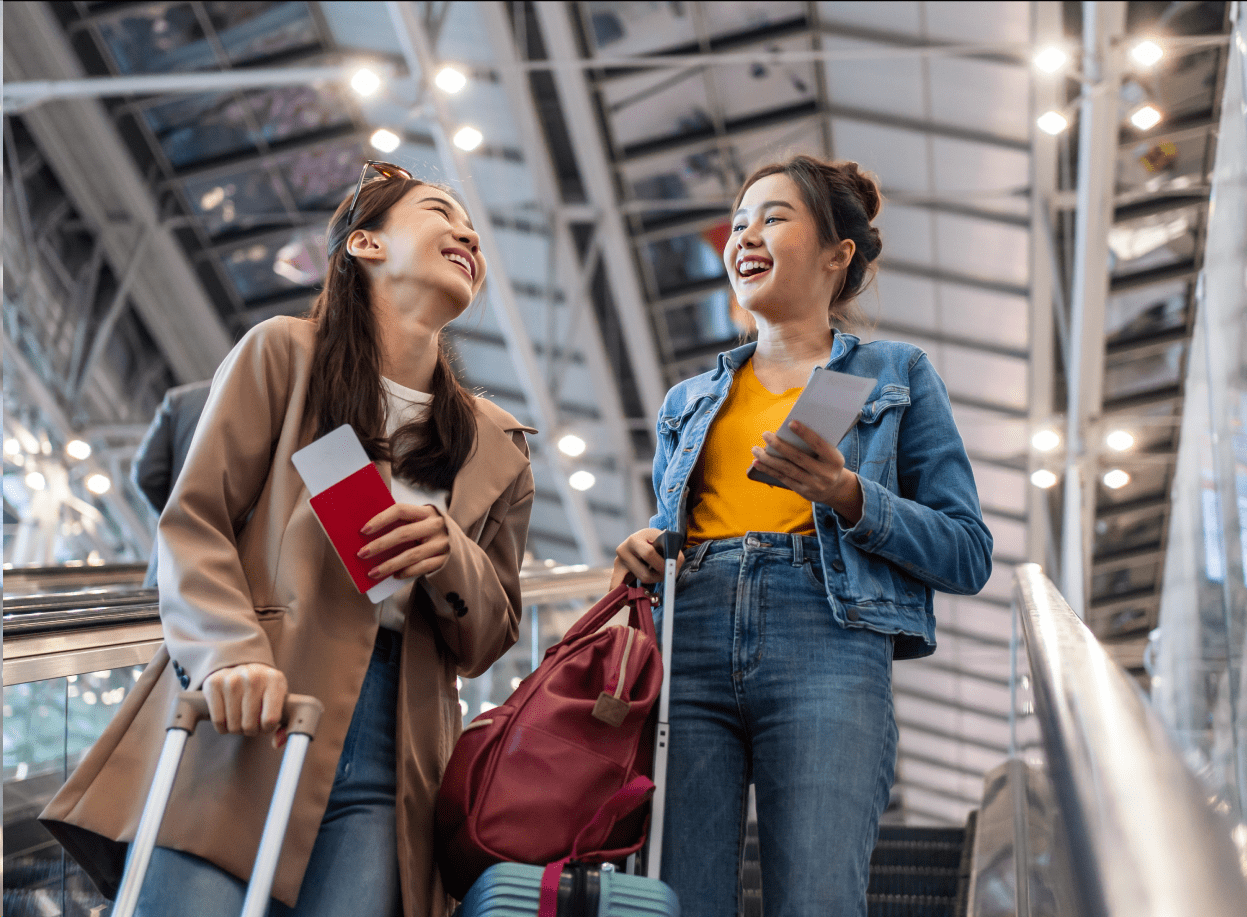
Welcome to the VisaTravel blog. We know that navigating the maze of visa applications and online forms can be as tricky as choosing the perfect travel playlist (which is all we want you worrying about anyway).
Throughout our years of experience, though, we’ve uncovered a mountain of knowledge which, via this blog, we’re sharing with you! Whether you're diving into the world of travel visas, wondering about the ESTA online hustle, or just trying to figure out the DS160 form, think of us as your online concierge, here to make the process easy and most of all, clear.
At this point in our global context, who has time for endless paperwork and confusing legal jargon? No one. That's why we're all about spilling the tea on online visa hacks, easier-to-work-with DS160 forms, and giving you tips on everything from tourist visas to immigration, to that last-minute ESTA online adventure.
So, just plug in a word you’re curious about on the search bar, and boom. We've got the tips, tricks, and insider info to help you (and anyone else you may be traveling with) get to your travel destination with the confidence of a seasoned traveler.
Now go explore!
 U.S. Visa
U.S. Visa
 Canada eTA
Canada eTA
 Schengen Visa
Schengen Visa
 New Zealand eTA
New Zealand eTA
 United Kingdom eTA
United Kingdom eTA
 Australia eVisitor
Australia eVisitor
 Vietnam eVisa
Vietnam eVisa
 Egypt eVisa
Egypt eVisa
 Singapore Arrival Card
Singapore Arrival Card
 Sri Lanka eVisa
Sri Lanka eVisa



